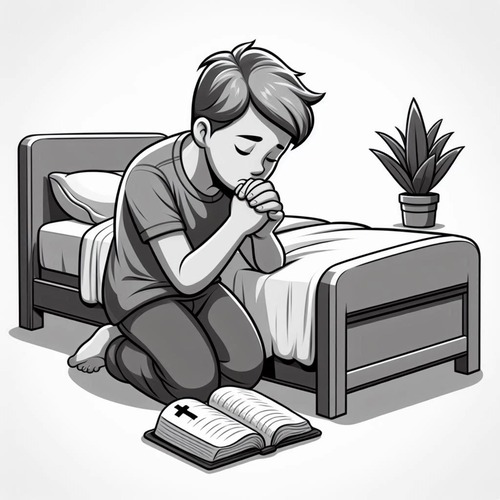Navigating Critical Race Theory: How Should Christians Respond?
In our polarised cultural moment, few topics generate more heat than Critical Race Theory does. Christians find themselves caught between passionate advocates demanding wholesale acceptance and fierce critics calling for complete rejection. Yet Scripture calls us to a different path—one that seeks wisdom, pursues justice, and tests all things in light of God’s Word. The question isn’t whether we should care about racial reconciliation, but whether Critical Race Theory can deliver the healing it promises, or if something greater is required.
UNDERSTANDING CRITICAL RACE THEORY
Critical Race Theory emerged from legal scholarship in the 1970s as an academic framework examining how race and racism intersect with law, politics, and society. At its core, CRT argues racism isn’t merely individual prejudice but a systemic force embedded in institutions and social structures. It views race as a social construct with ongoing power implications, elevates lived experience as a primary source of knowledge, and emphasises intersectionality—how various group identities compound experiences of oppression.
We must distinguish between academic CRT and its popular applications in education and workplace training. While scholars debate complex legal theories, Americans encounter CRT’s influence in diversity seminars or school curricula that emphasise group identity and systemic oppression narratives.
Importantly, CRT addresses legitimate concerns. America’s history includes the horrors of slavery, the injustices of segregation, and ongoing racial disparities that demand honest acknowledgement. The question isn’t whether these problems exist, but whether CRT’s framework provides the right diagnosis and cure.
A BIBLICAL FRAMEWORK FOR RACE AND JUSTICE
Scripture provides a comprehensive foundation for understanding race and justice. This foundation not only affirms human dignity but also offers genuine hope. The Bible teaches we’re all created in God’s image (Genesis 1:27), establishing a foundational dignity that transcends racial categories. Acts 17:26 reveals God “made from one man every nation of mankind,” affirming both our common origin and the beauty of human diversity.
Yet Scripture also acknowledges sin’s universal reach, recognising that racism represents a manifestation of fallen human nature affecting both individuals and institutions. The prophet Amos thunders, “Let justice roll down like waters and righteousness like a mighty stream” (Amos 5:24), demonstrating God’s heart for the oppressed and His demand for justice.
The gospel offers profound hope for racial reconciliation. Ephesians 2:14-16 declares Christ “has broken down in his flesh the dividing wall of hostility” and has created “one new man in place of the two, so making peace.” Revelation 7:9 provides the ultimate vision: a great multitude “from every nation, from all tribes and peoples and languages” worshiping together before God’s throne.
Crucially, biblical anthropology maintains both corporate responsibility and individual accountability. While acknowledging systemic sin, Scripture never abandons personal responsibility or reduces individuals to mere products of their group identity.
WHAT CHRISTIANS AFFIRM
As Christians, we must honestly reckon with historical injustices such as slavery and segregation, recognising their ongoing effects in contemporary society. Our doctrine of total depravity confirms sin manifests not only individually but through institutional structures and cultural patterns.
Christians are called to pursue justice actively, working against racial prejudice and structural inequalities wherever they exist. Wisdom demands that we listen carefully to marginalised voices, learning from the experiences of racial minorities who have insights into dynamics that others might miss. Some of CRT’s analytical tools can help us understand social patterns and historical developments.
The church bears a prophetic responsibility to speak against injustice as part of our gospel witness. We cannot retreat into comfortable silence when brothers and sisters face discrimination or when societal structures perpetuate inequality.
WHAT CHRISTIANS REJECT
However, CRT’s framework ultimately conflicts with biblical truth in several crucial areas. Most fundamentally, CRT operates as a competing metanarrative that cannot supersede Scripture as our ultimate interpretive lens for understanding reality.
While affirming corporate responsibility, we must reject any system that makes group identity primary over individual dignity and personal accountability. CRT’s elevation of lived experience as an authoritative source of truth conflicts with the Bible’s teaching that God’s revelation provides the ultimate standard for understanding reality.
CRT’s neo-Marxist foundations, which frame society primarily through power struggles between oppressor and oppressed groups, contradict Christian anthropology and soteriology. This framework often leads to a hopelessness about reconciliation that stands in stark contrast to gospel hope.
Biblical justice distinguishes between corporate responsibility and individual guilt. While we acknowledge systemic problems and work for structural change, we cannot embrace frameworks that assign guilt or innocence based on group membership rather than individual choices and circumstances.
NAVIGATING CRITICAL RACE THEORY: A GOSPEL-CENTRED RESPONSE
So how should Christians engage? We must model racial reconciliation in our congregations and denominations, creating spaces where diverse believers experience genuine unity in Christ. In educational settings, we engage CRT critically while advocating for biblical worldview formation that offers deeper hope than any merely human framework.
We invest relationally across racial lines, building authentic friendships marked by mutual respect and careful listening. We study history honestly without accepting interpretive frameworks that contradict Scripture. We support just policies while rejecting ideological capture that would compromise gospel truth.
THE GOSPEL’S SUPERIOR PROMISE
Critical Race Theory diagnoses real problems but offers incomplete solutions. It can identify systemic injustices and historical patterns, but it cannot transform hearts or create lasting reconciliation. Only the gospel addresses the root of human division—sin—and provides the supernatural power necessary for genuine unity.
The gospel promises what CRT cannot ever deliver: hearts transformed by divine grace, communities united by spiritual rebirth, and an eternal hope that transcends earthly categories. While we work for justice in this age, we do so knowing perfect reconciliation awaits Christ’s return, when every tribe and tongue will worship together in perfect harmony.
The question isn’t whether we should care about racial justice—Scripture demands it. The question is whether we’ll pursue that justice through human frameworks that ultimately disappoint, or through the gospel that delivers what it promises: genuine, lasting, supernatural reconciliation that begins now and will be completed in glory.
NAVIGATING CRITICAL RACE THEORY: RELATED FAQs
What do leading Reformed theologians make of CRT? John Piper has expressed concerns about CRT’s elevation of racial identity over biblical identity. He argues the gospel creates a deeper unity than any racial category. Tim Keller takes a more nuanced approach, affirming CRT’s insights about systemic racism while rejecting its materialist foundations and group-based guilt concepts. Both emphasise that while Christians must address racial injustice, the gospel provides a superior framework for understanding human identity and achieving reconciliation.
- How does the Reformed doctrine of common grace relate to CRT insights? Common grace allows Reformed Christians to recognise truth wherever it appears, even in secular frameworks like CRT. Through common grace, CRT scholars can identify real patterns of injustice and systemic problems that Christians should acknowledge. However, common grace doesn’t validate CRT’s entire worldview or methodology—it simply explains how non-Christians can discover certain truths about social realities while missing the deeper spiritual dimensions that only Scripture reveals.
- What’s the difference between CRT and Liberation Theology? Both CRT and Liberation Theology prioritise social transformation and critique oppressive systems, but Liberation Theology explicitly claims Christian foundations while CRT operates from secular assumptions. Reformed theologians generally view Liberation Theology as more dangerous because it corrupts the gospel itself, while CRT operates outside Christian frameworks entirely. However, both are critiqued for reducing complex realities to oppressor-oppressed categories and for potentially undermining individual responsibility and biblical anthropology.
- How should parents handle CRT concepts in their children’s education? Reformed parents should engage educational CRT content as a discipleship opportunity rather than simply opposing it. This means helping children identify true insights (historical injustices, systemic problems) while teaching them to evaluate all claims through Scripture. Parents can affirm concerns about racial injustice while explaining why the gospel offers better solutions than CRT’s framework. The goal is raising children who can think critically about social issues while maintaining biblical worldview foundations.
Do any Reformed denominations have official positions on CRT? The Presbyterian Church in America (PCA) passed a resolution in 2021 expressing concerns about CRT’s incompatibility with biblical anthropology while affirming commitments to racial reconciliation. The Orthodox Presbyterian Church has similarly critiqued CRT’s worldview assumptions while supporting racial justice efforts. However, individual Reformed churches and leaders show considerable diversity in their approaches, with some embracing certain CRT insights and others rejecting the framework entirely. The trend is toward nuanced engagement rather than wholesale acceptance or rejection.
NAVIGATING CRITICAL RACE THEORY: OUR RELATED POSTS
Editor's Pick

Do Christians Need Holy Shrines? Why the Reformed Answer Is No
Walk into a medieval cathedral and you'll encounter ornate shrines, gilded reliquaries, and designated "holy places" where pilgrims gather to [...]

I Want To Believe, But Can’t: What Do I Do?
"I want to believe in God. I really do. But I just can't seem to make it happen. I've tried [...]

BC 1446 or 1250: When Did the Exodus Really Happen?
WHY REFORMED SCHOLARS SUPPORT THE EARLY DATE Many a critic makes the claim: “Archaeology has disproven the biblical account [...]

Does God Know the Future? All of It, Perfectly?
Think about this: our prayers tell on us. Every time we ask God for something, we’re confessing—often without realising it—what [...]

Can Christian Couples Choose Permanent Birth Control?
Consider Sarah, whose fourth pregnancy nearly killed her due to severe pre-eclampsia, leaving her hospitalised for months. Or David and [...]

Bone of My Bones: Why Eve Was Created From Adam’s Body
"This at last is bone of my bones and flesh of my flesh!" Adam's joyful exclamation upon first seeing Eve [...]

Is Calvinism Fatalism in Christian Disguise? Think Again
We hear the taunt every now and then: "Calvinism is just fatalism dressed up in Christian jargon." Critics argue Reformed [...]

Can Churches Conduct Same-Sex Weddings?
In an era of rapid cultural change, churches across America face mounting pressure to redefine their understanding of marriage. As [...]

Gender Reassignment: Can Christian Doctors Perform These Surgeries?
In the quiet of a clinic, a Christian physician faces a challenging ethical question. A patient sits across the desk, [...]

‘What Sorrow Awaits You Who Are Rich…’: What Does Jesus Mean?
The words hang in the air like a sword over comfortable Christianity: “What sorrow awaits you who are rich, for [...]
SUPPORT US:
Feel the Holy Spirit's gentle nudge to partner with us?
Donate Online:
Account Name: TRUTHS TO DIE FOR FOUNDATION
Account Number: 10243565459
Bank IFSC: IDFB0043391
Bank Name: IDFC FIRST BANK






